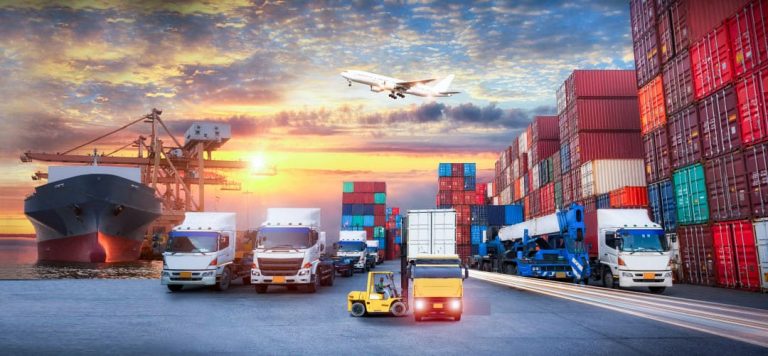If you are an importer or exporter, especially in a startup or SMBs, you may have faced the customs clearance charges in your international trade transactions. But what exactly are these charges, and how can you avoid paying unnecessary fees or penalties?
In this blog post, we will explain the factors that affect the charges, and some tips to reduce your costs and streamline your customs clearance process
Some factors affected the amount of customs clearance charges
Customs authorities of the destination country charge custom clearance costs to process and release your shipment.
There are many factors that impact custom clearance costs. Here are a few fundamental factors.
The value of the goods
Essentially, the greater the value of the goods, the greater the customs clearance charges. Customs authorities levy duties and taxes on the goods based on their value, which they usually calculate as a percentage of the declared value.
Types of Charges (Source: WTO)
Import Duties
These charges are usually calculated as a percentage of the declared value, varying from 0% to more than 20% based on factors such as the product type, country of origin, and trade agreements.
Brokerage Fees
The custom clearance costs can be fixed, per-shipment, or a percentage of the value, often ranging from 1% to 5%.
The custom clearance costs can be fixed often ranging from 1% to 5%.
Other Charges
These might include inspection fees, storage fees, and compliance certifications, and their impact can vary greatly depending on the specific situation.
If you import clothes with a declared value of $1000 and a 10% duty rate, the import duty would be $100.
Brokerage fees for the same shipment might be 2% of the value, amounting to $20. Additional inspection fees could further increase the charges.
Nonetheless, certain countries might establish a minimum threshold for duties and taxes. This implies that if the value of the goods falls below a specified amount, you might not be obligated to pay any customs clearance charges.
The type of goods
Different types of goods may have different custom clearance requirements and regulations, depending on the destination country.
Certain goods might require special permits, licenses, certificates, or inspections, potentially leading to additional fees or delays.
Different types of goods may have different custom clearance requirements and regulations.
Some goods may also be subject to specific duty rates or exemptions, depending on their classification or origin.
For example:
- Importing textiles often faces higher duties than raw materials due to protectionist policies.
- Live animals or hazardous materials might require mandatory inspections and certifications, increasing costs.
- High-value electronics might attract additional luxury taxes depending on the country.
The mode of transport
The mode of transport you choose to ship your goods may also affect the amount of customs clearance charges.
Air transport
It’s often used for high-value, time-sensitive, or perishable goods. Air transport generally incurs higher customs clearance costs due to the expedited nature of the process. The value of the goods and the applicable duty rates determine the customs duties and taxes.
Sea transport
Shipping goods by sea is popular for moving large amounts of products across vast distances.
Customs clearance for sea transport includes different fees like port charges, handling fees, and taxes determined by the value of the goods and the rules of the country receiving the shipment.
Shipping goods by sea is popular for moving large amounts of products.
Delays in customs clearance can occur due to the volume of shipments and regulatory compliance requirements.
Road transport
Trucking is a prevalent mode of transport for land-based shipments, especially within regional or neighboring countries.
Clearing customs for road transport means verifying paperwork at border points, like customs forms, invoices, and permits. Costs and delays depend on how smoothly border checks go and if transportation rules are followed.
Rail transport
When it comes to rail transport, goods move across continents on trains, especially where railways are well-established.
Clearing customs for rail involves similar paperwork and checks as for roads. Costs depend on transit times, customs setups, and agreements between countries.
Tips to reduce your charges and streamline your customs clearance process
If you’re involved in export and import customs clearance, you might seek to minimize costs and simplify the customs clearance process.
Here are some suggestions to assist you in achieving that goal:
Know the rules and regulations of the destination country
Different countries have different requirements for customs clearance, such as tariffs, duties, taxes, permits, licenses, certificates, etc.
Different countries have different requirements for customs clearance.
You should research these before shipping your goods and prepare the necessary documents and information.
Choose a reliable customs provider
A customs provider can help you with the paperwork, classification, valuation, payment, and compliance of your goods.
They can also advise you on the best shipping methods, routes, and carriers to save time and money.
Use a single invoice for multiple shipments
If you are sending multiple shipments to the same destination within a short period of time, you can consolidate them into one invoice and declare them as a single entry.
This can reduce the number of transactions, fees, and inspections that you have to deal with.
Apply for preferential trade agreements
Some countries have trade agreements that offer lower or zero tariffs for certain goods or regions.
You should check if your goods qualify for these agreements and apply for the relevant certificates or origin or declarations.
Avoid mistakes and delays
Mistakes in your customs paperwork can result in penalties, fines, or even the seizure or rejection of your goods. It’s crucial to verify that your documents are precise, thorough, and coherent.
Additionally, stay informed about your shipments and maintain open communication with your customs broker and carrier to prevent unforeseen setbacks or complications.
DNBC: streamline your customs clearance process in money transfer
DNBC Financial Group streamlines your international money transactions, guaranteeing smooth customs clearance processes.
By leveraging advanced technology and reasonable costs, we streamline the transfer of funds across borders, making it easier for businesses to navigate customs requirements.
Our efficient solutions help minimize delays and uncertainties, allowing you to focus on your core operations with confidence.
Whether you’re importing or exporting goods, DNBC Financial Group is your trusted partner in optimizing your financial transactions for seamless customs clearance in transferring money internationally.
DNBC Financial Group is your trusted provider in international money transfer
- Get 100% free 1-on-1 support
- 100% free account opening
- Seamless onboarding process
Or please contact DNBC
Email: [email protected]
Phone Number:
- +65 6572 8885 (Office)
- +1 604 227 7007 (Hotline Canada)
- +65 8442 3474 (WhatsApp)



 DNBC Team
DNBC Team










